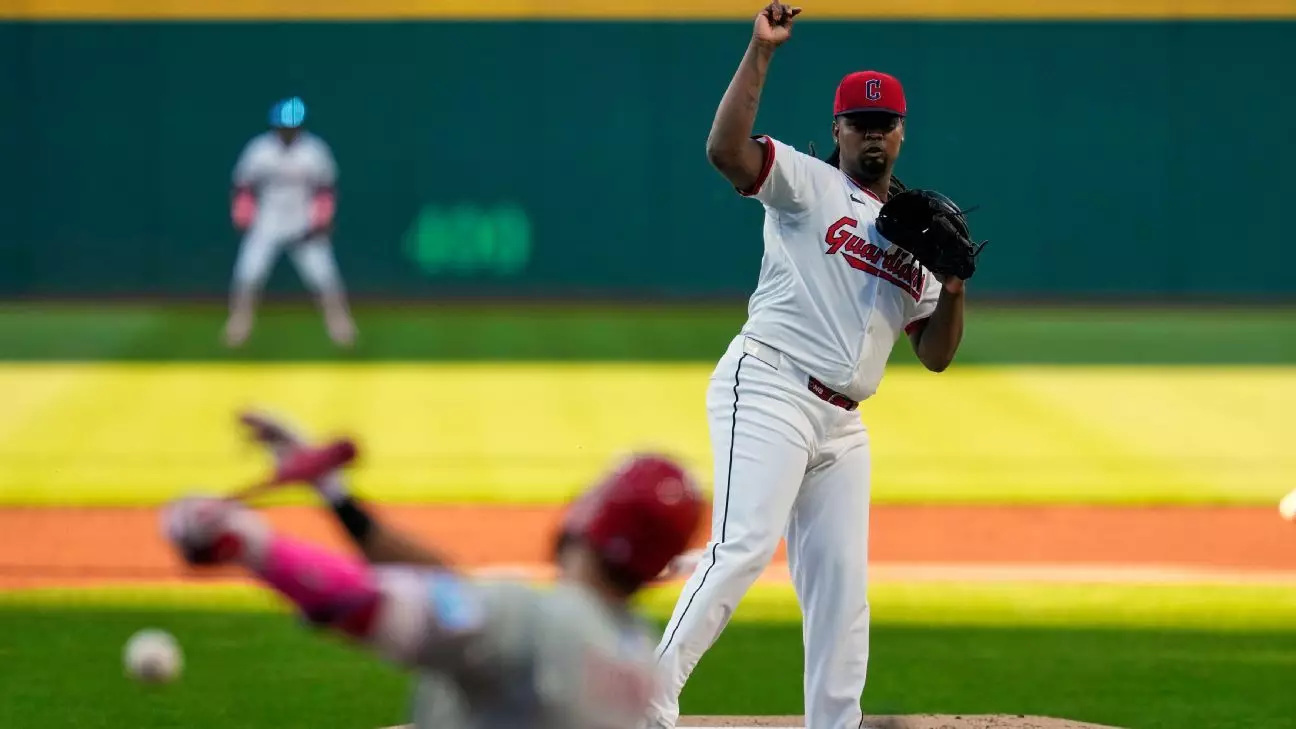Major League Baseball finds itself at a precarious crossroads, facing an unfolding crisis that threatens to tarnish its integrity and shake the trust of its loyal fans. The recent investigation involving Cleveland Guardians pitcher Luis Ortiz exemplifies the growing reality: gambling’s tentacles are creeping into the sport’s core, creating a dangerous cloud of suspicion that fellow athletes and the league itself must confront with unwavering resolve. It is no longer a matter of isolated incidents but a systemic concern that demands rigorous scrutiny and decisive action.
Ortiz’s case highlights how even small bets—such as wagers on the outcome of a first pitch—can have disproportionate repercussions. These microbets, once considered a fringe curiosity, have now become a focal point for betting syndicates seeking to influence outcomes subtly. The league’s decision to place Ortiz on paid leave during an ongoing investigation raises questions about transparency and whether the current approach is sufficient to safeguard the sport’s integrity. The fact that bets were flagged in multiple states—Ohio, New York, and New Jersey—further emphasizes how widespread and insidious this problem has become.
But more alarming is the pattern of league investigations into gambling misconduct. The case of Tucupita Marcano, who received a lifetime ban after nearly 400 bets, alongside others facing shorter suspensions, underscores how seriously MLB views gambling violations. Yet, the league’s actions sometimes seem reactive rather than preventative, as if they are constantly chasing shadows rather than eradicating the root causes. The firing of umpire Pat Hoberg over sharing a betting account and deleting messages reveals a league struggling to police itself against internal vulnerabilities, let alone external gambling pressures.
The reputation of baseball as America’s pastime hinges on trust—trust that players are competing honestly and that the game remains free from corrupting influences. MLB’s response thus far appears inadequate; a half-hearted suspension or inquiry does little to quell genuine concerns. Instead, it risks sending a message that some breaches are less severe, paving the way for future misconduct. This approach inadvertenty chips away at the very foundation of fair play, creating a perilous precedent that could embolden more players to indulge in risky bets.
The Cultural Shift and Its Dangerous Implications
What makes this crisis even more dangerous is the shifting cultural landscape surrounding gambling. Sports betting, once taboo and criminalized in many circles, has now mainstreamed, especially with the advent of micro-bets. The allure of quick, accessible wagers has enticed a generation of fans and players alike, blurring the lines between fandom and financial interest. This normalization fosters an environment ripe for conflicts of interest, especially for young athletes like Ortiz, who might view betting as harmless entertainment rather than a threat to integrity.
MLB’s leniency and complex negotiations with the Players Association suggest a tacit acceptance of gambling’s tentacles; as long as penalties remain proportionate and transparent, they seem willing to tolerate a smoldering risk. Yet, it’s a dangerous game to play. The integrity of the sport is the currency that sustains its cultural significance, and any compromise could irreparably damage its reputation. A single scandal—implying fixed games or biased officiating—could undo decades of effort to build a trustworthy league.
The perception problem isn’t just about the league’s internal struggles, but also how it is viewed externally. News of investigations into gambling suddenly turns headlines into cautionary tales, fostering skepticism among fans and stakeholders. This skepticism, if left unaddressed, can erode the sport’s credibility, discouraging investment, attendance, and engagement from a public often wary of manipulation and corruption.
MLB should recognize that combating gambling-related misconduct requires a proactive, transparent strategy rather than reactive measures. Strengthening oversight, educating players on ethical boundaries, and imposing clear, consistent penalties are imperative. Failure to do so risks transforming baseball from a game of skill and tradition into another playground for gambling elites—an outcome no fair-minded supporter of the sport should tolerate.

Leave a Reply